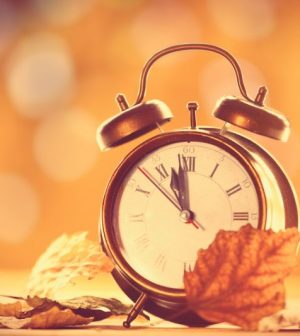- Could Your Grocery Store Meat Be Causing Recurring UTIs?
- Are You Making This Expensive Thermostat Error This Winter?
- Recognizing the Signs of Hypothyroidism
- 10 Strategies to Overcome Insomnia
- Could Artificial Sweeteners Be Aging the Brain Faster?
- Techniques for Soothing Your Nervous System
- Does the Water in Your House Smell Funny? Here’s Why
- Can a Daily Dose of Apple Cider Vinegar Actually Aid Weight Loss?
- 6 Health Beverages That Can Actually Spike Your Blood Sugar
- Treatment Options for Social Anxiety Disorder
Timing Is Everything When It Comes to Calorie Intake

If you skip or skimp on breakfast, grab a quick lunch and then load up at dinner, your food intake is likely out of sync with your body’s needs.
Not getting calories when you really need them (hint: during the day) could be why you’re having a hard time shedding pounds or finding the energy to exercise. Here’s how to rebalance your calorie intake.
One approach, recommended by sports fitness dietitian Nancy Clark, is to divide your daily intake into four equal meals — breakfast, lunch, a second lunch eaten midafternoon, and dinner — with the calories for the second lunch coming from the ones you’re probably taking in during late-night snacking. This keeps your body fueled throughout the day so you have the energy you need when you need it.
Front loading calories also seems to speed weight loss, according to research published in the International Journal of Obesity. Researchers from the University of Murcia, in Spain, tracked 420 participants on a 20-week weight-loss program. All followed a Mediterranean lifestyle with lunch being the main meal of the day. Half were “early” lunch eaters, eating before 3 p.m., and half ate later. Over the study, the early lunch eaters lost significantly more weight than those who ate later (and who also tended to skip or eat less at breakfast than the early lunchers), even though both groups had the same daily calorie intake, did about the same amount of exercise, and got the same amount of sleep.
Speaking of sleep, don’t minimize the importance of getting enough shuteye. That — and not an afternoon coffee, energy drink or sugary snack — is the way to avoid a midday slump.
More information
The U.S. Department of Agriculture has ideas for making smarter choices at lunch to maximize nutrition at this all-important meal.
Source: HealthDay
Copyright © 2026 HealthDay. All rights reserved.










